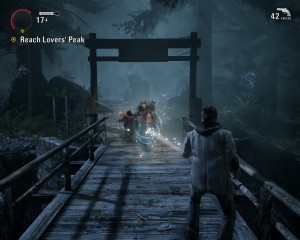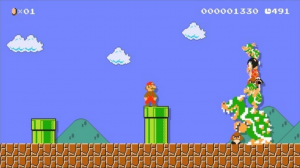Last week, another game has been removed from digital store shelves due to an outside issue. Alan Wake can no longer be bought due to the copyrighted music’s licenses running out. This isn’t the first game nor the last to no longer be available, but just another reason why we need to take greater steps for game preservation.
The Technical Hurdles:
I recently spoke to designer Clayton Kauzlaric about the work that went into remastering Voodoo Vince. We spoke about the hard work and importance of video game preservation. He said something that rang true: It’s easier to watch a movie from a hundred years ago than it is to play a 20 year-old video game.
The Video Game Industry has done a horrible job when it comes to preserving itself, and there are several reasons why. First is the challenge of keeping these games playable.
From a hardware standpoint, it’s becoming harder and harder to find the necessary hardware or repair them if something breaks. On the technical side, many games were built using custom engines for the time; increasing the difficulty of getting them working on modern emulators.
When I spoke with GOG a few years ago, they talked about the near impossibility it was for them to restore pre DOS-era games. As we move into the modern era, the more powerful the hardware, the stronger the emulator required to run it properly.
The Legal Hurdles:
This is something that GOG is very well aware of. Getting the rights to digitally preserve classic games can be a nightmare of litigation. Every part of a video game must be accounted for: From the design itself, artwork, the brand, and of course the licensed music.
Copyright laws when it comes to licensing music are not designed around the fact that games have to be updated in order to be maintained. Video games are not like other mediums by the fact that code has to be updated as technology evolves in order to keep these games running.
When older game companies are bought out or go under, the ownership of the IP can be lost in the shuffle. This can lead to a case where someone wants to get the game working, but no one can work on it because the IP can’t be secured.
And even if the IP can be found, there is still the trouble of negotiating the licensing of the IP to be used. Many older games no longer have a shelf or store life, but that doesn’t make it any easier to get the rights to preserve it.
Consumer Interest:
The last two points are the hardest to deal with. I’m sad to say that most consumers don’t care about preserving video games. For them, video games are akin to computer products — Once the new version is out, the old one is obsolete.
We have seen interest in older games, as evident by the rush of NES Classic Editions being sold out. The problem has to do with the consumer mindset itself. With any medium, no one is thinking about how items are preserved at their heights. I can safely say that no one was giving a thought to how people would be able to read golden age comics 50 years into the future.
There are always going to be people who don’t care about the past when it comes to video games, but it’s still important to preserve them. Not only does this create a history for us, but it can provide knowledge on the evolution of design; something a lot easier to show if we can play those games.
The Industry Itself:
At last we come to the big one. The Game Industry as we’ve talked about before is horrible when it comes to agreeing on standards. With everything decentralized, coming up with across the board policies is all but impossible.
Not only do we have the hurdles we’ve talked about, but there is a new problem at work. For titles designed around “games as a service,” they require access to the servers for updates and downloading new content.
Once a game is no longer selling, publishers tend to turn off the servers for their games; killing any chance of continuing to play them. With the news surrounding Hitman 2016 and Io Interactive, I’m wondering if we will still be able to play the game in a few years from now.
Taking Action:
This is a problem that’s only going to get harder as older platforms become harder to support. As I’ve said before, I would love to see a preservation company like GOG for the consoles, but without the industry coming together on that, it would be impossible right now.
For those of you who feel that video games are art, this should be a major issue for you. I don’t want things to get to the point where it’s easier to look at the Mona Lisa than it is to play Mario Kart.




